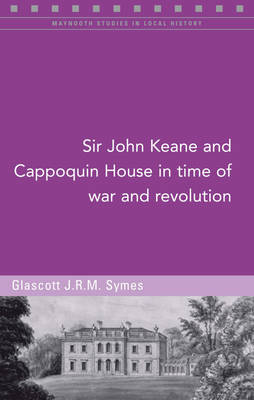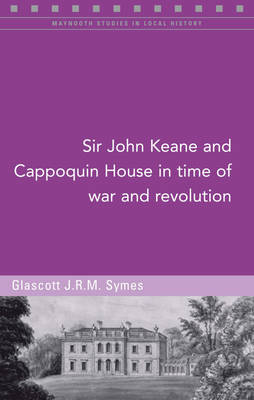
- Afhalen na 1 uur in een winkel met voorraad
- Gratis thuislevering in België vanaf € 30
- Ruim aanbod met 7 miljoen producten
- Afhalen na 1 uur in een winkel met voorraad
- Gratis thuislevering in België vanaf € 30
- Ruim aanbod met 7 miljoen producten
Zoeken
Sir John Keane and Cappoquin House in Time of War and Revolution, 127
Glascott J R M Symes
€ 13,95
+ 27 punten
Omschrijving
This study provides an in-depth look at the fascinating life of John Keane, who owned and managed the Cappoquin estate in Co. Waterford during one of the most turbulent periods of Irish history. John Keane (1873-1956) inherited the Cappoquin estate at the age of 19, just as he was commissioned into the army. His mother managed the property as he served in the Boer War and later as ADC to the Lord Lieutenant of Ireland. After marrying, Keane returned to Waterford where he began to play a part in public life both as a supporter of Horace Plunkett's Co-operative movement and on Waterford County Council, where he allied himself to William O'Brien's All-for-Ireland League promoting Home Rule by consent. At the outbreak of World War I, he re-joined the army and his wife Eleanor took charge of the estate. On returning to Ireland, he played a leading role for the Farmers' Union during a prolonged and bitter strike by farm workers. The War of Independence raged in Munster but did not impinge on Cappoquin House directly. Subsequently, on the establishment of the Free State, Keane accepted Cosgrave's nomination as an independent Senator. During the Civil War, senators were targeted; Cappoquin House was destroyed by fire in 1923. The Keanes sought compensation and restored the house. (Series: Maynooth Studies in Local History, Vol. 127) [Subject: 19th & 20th Century History, Revolutionary Ireland, Cork, Ireland]
Specificaties
Betrokkenen
- Auteur(s):
- Uitgeverij:
Inhoud
- Aantal bladzijden:
- 66
- Taal:
- Engels
- Reeks:
- Reeksnummer:
- nr. 127
Eigenschappen
- Productcode (EAN):
- 9781846826139
- Verschijningsdatum:
- 5/08/2016
- Uitvoering:
- Paperback
- Formaat:
- Trade paperback (VS)
- Afmetingen:
- 135 mm x 211 mm
- Gewicht:
- 113 g

Alleen bij Standaard Boekhandel
+ 27 punten op je klantenkaart van Standaard Boekhandel
Beoordelingen
We publiceren alleen reviews die voldoen aan de voorwaarden voor reviews. Bekijk onze voorwaarden voor reviews.











